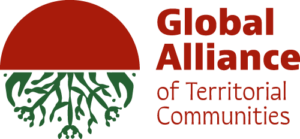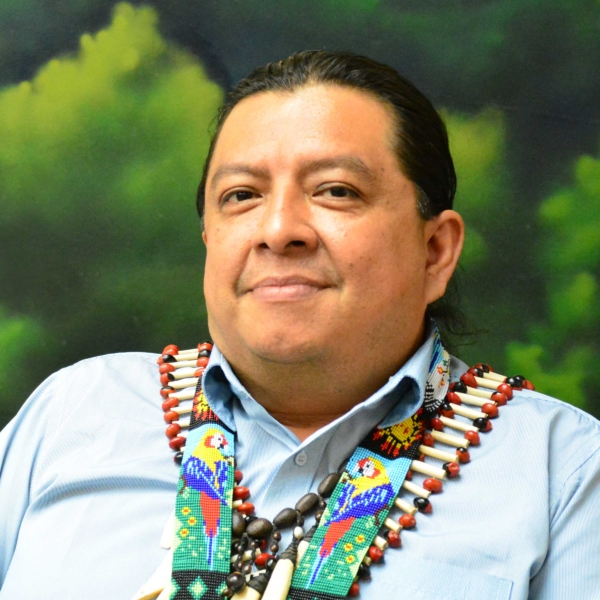NUESTRAS METAS
Durante la Semana del Clima de Nueva York 2023, nosotros, los Pueblos Indígenas y las Comunidades Locales, estamos liderando el movimiento de preservación ambiental.
Nuestra misión es clara: buscamos dar prioridad a nuestras voces en las conversaciones sobre el clima. Abogamos por políticas que respeten nuestro conocimiento tradicional, protejan nuestros derechos, aborden la violencia en nuestras tierras y aumenten la financiación para nuestras comunidades.
Nos estamos uniendo con líderes de nuestros territorios para llevar nuestros mensajes y propuestas a todas las discusiones relacionadas con nuestras tierras.
Shandia es el nombre de nuestra plataforma común que creamos para facilitar la financiación directa a los territorios de nuestros pueblos y comunidades para acciones que combatan el cambio climático, conserven la biodiversidad y sustenten nuestros derechos y desarrollo autodeterminado. Durante toda la semana, lideraremos esfuerzos de defensa para desafiar los sistemas de financiamiento climático existentes y garantizar que los recursos lleguen a los pueblos que protegen la biodiversidad en los territorios más ricos.
Nuestro objetivo es amplificar nuestras voces a nivel global, destacando nuestra profunda conexión con la tierra, nuestro rico conocimiento tradicional y prácticas sostenibles. Nuestra delegación conecta las conversaciones de alto nivel con las realidades sobre el terreno, representando a las regiones de selva tropical de todo el mundo. Buscamos aliados entre las instituciones del campo y los ciudadanos comprometidos para garantizar que nuestras perspectivas sean respetadas en las discusiones sobre nuestros territorios.
Nuestro objetivo es crear conciencia a nivel global sobre la criminalización y violencia que afecta a nuestras comunidades y territorios, resaltando su impacto en nuestro papel de guardianes de la biodiversidad Queremos abordar la responsabilidad que los estados y las corporaciones tienen en la perpetuación de la violencia y la destrucción ambiental. Aprovechando alianzas con institutos de investigación y organizaciones de derechos humanos, revelamos conexiones ocultas entre los intereses corporativos y nuestras experiencias de violencia.
photo: Rachel Elkind
PROGRAMA
Nuestro programa representa las voces y aspiraciones de los Pueblos Indígenas y Comunidades Locales, abogando por nuestros derechos y la preservación de nuestros territorios ancestrales.
Marcha para acabar con los combustibles fósiles
12:30 pm
Calle 52 y Broadway
Únase a nuestra delegación mientras participamos en la marcha y manifestación pidiendo un mundo libre de combustibles fósiles que dañan nuestras tierras ancestrales.
Podemos, lo haremos, estamos impulsando la acción climática.
9:00 am
Climate Group organizó un panel con Rukka Sombolinggi, Secretaria General de la Alianza de Pueblos Indígenas del Archipiélago (AMAN).
Financiar la economía verde: Financiar la justicia climática, hacer un balance para un futuro sostenible
11:55 am
Climate Group organizó un panel con Sara Omi, representante del Movimiento de Mujeres de la Alianza Global.
Agricultura para el futuro: Agricultura sostenible y fin de la deforestación
11:55 am
Climate Group organizó un panel con Sara Omi, representante del Movimiento de Mujeres de la Alianza Global.
Derechos, Participación y Beneficios para los Pueblos Indígenas
9:00 am
Participación privada en el debate sobre Derechos, Participación y Beneficios para los Pueblos Indígenas y las Comunidades Locales en el Financiamiento Climático de los Bosques a cargo de la Asociación de Líderes Forestales y Climáticos (FCLP).
De la visión a la acción: dando forma al financiamiento directo para los pueblos indígenas y las comunidades locales
3:00 pm
Fundación Ford
La Alianza Global organizó un evento para hablar sobre los planes y logros de la Plataforma Shandia en el ámbito del financiamiento directo.
Misión Permanente de Costa Rica ante las Naciones Unidas
6:30 pm
Evento de alto nivel para la naturaleza y las personas: de la ambición a la acción.
Día de la Alimentación de la Asamblea General de las Naciones Unida
8:30 am
Fundación Rockefeller
Participación en el Día de la Alimentación de la Asamblea General de las Naciones Unida.
Path to Scale
9:00 am
Fundación Ford
Reunión Path to Scale, convocada por la Rights and Resources Initiative (RRI).
Bosques, naturaleza y clima
6:00 pm
Recepción de alto nivel sobre Bosques, naturaleza y clima convocado por la Asociación de Líderes Forestales y Climáticos (FCLP)
Promoción de enfoques basados en derechos para la conservación de áreas
8:30 am
Fundación Ford
Evento organizado por la Rights and Resources Initiative (RRI) y la Alianza Global
en busca de una colaboración ambiciosa
6:30 pm
Recepción organizada por la Alianza Global de Comunidades Territoriales para convocar a aliados de Pueblos Indígenas y Comunidades Locales en busca de una colaboración ambiciosa.
S.E. Razan Al Mubarak
1:00 pm
Reunión con S.E. Razan Al Mubarak – Campeona de alto nivel de la ONU sobre cambio climátic.
The Shed
5:00 pm
Our Village, un espacio para que los Pueblos Indígenas y Comunidades Locales compartan sus historias y demandas.
The Shed
10:00 am
Our Village, un espacio para que los Pueblos Indígenas y Comunidades Locales compartan sus historias y demandas.
photo: Rachel Elkind
PRENSA
Explore nuestra sección dedicada que presenta artículos de noticias que destacan nuestra participación durante la Semana del Clima de Nueva York.
Los defensores de las selvas
El País
Debemos recordarle a los Estados los compromisos que han firmado por el bienestar y por el cuidado de este planeta
Mongabay
Why Native Women’s Voices Are Crucial to Saving Brazil’s Forests
Yale Environment 360
Why are nature protection funds not reaching indigenous peoples?
Thomson Reuters
Para entrevistar a nuestros delegados envíe un correo electrónico a email hidden; JavaScript is required o email hidden; JavaScript is required
Para estar al día con las noticias de los guardianes de los Pueblos Indígenas y Comunidades Locales, suscríbete aquí.
Contáctenos
Consultas generales:
email hidden; JavaScript is required
Prensa y medios de comunicación:
email hidden; JavaScript is required
La Fundación Rainforest US es nuestro patrocinador fiscal. Para cualquier carta o paquete, por favor diríjase a:
Rainforest Foundation US
P.O. Box 26908
Brooklyn, NY 11202
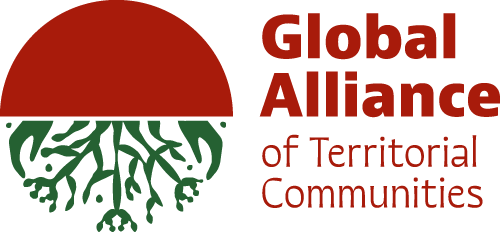
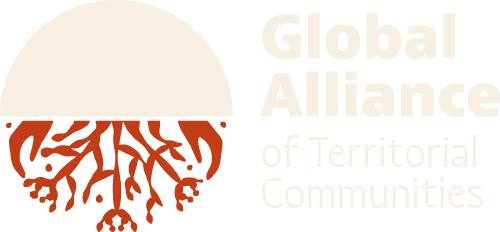
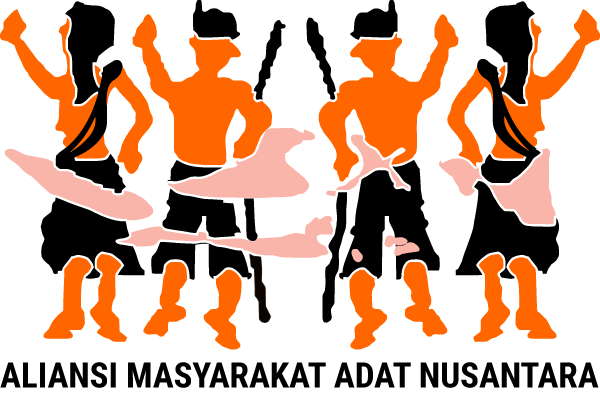

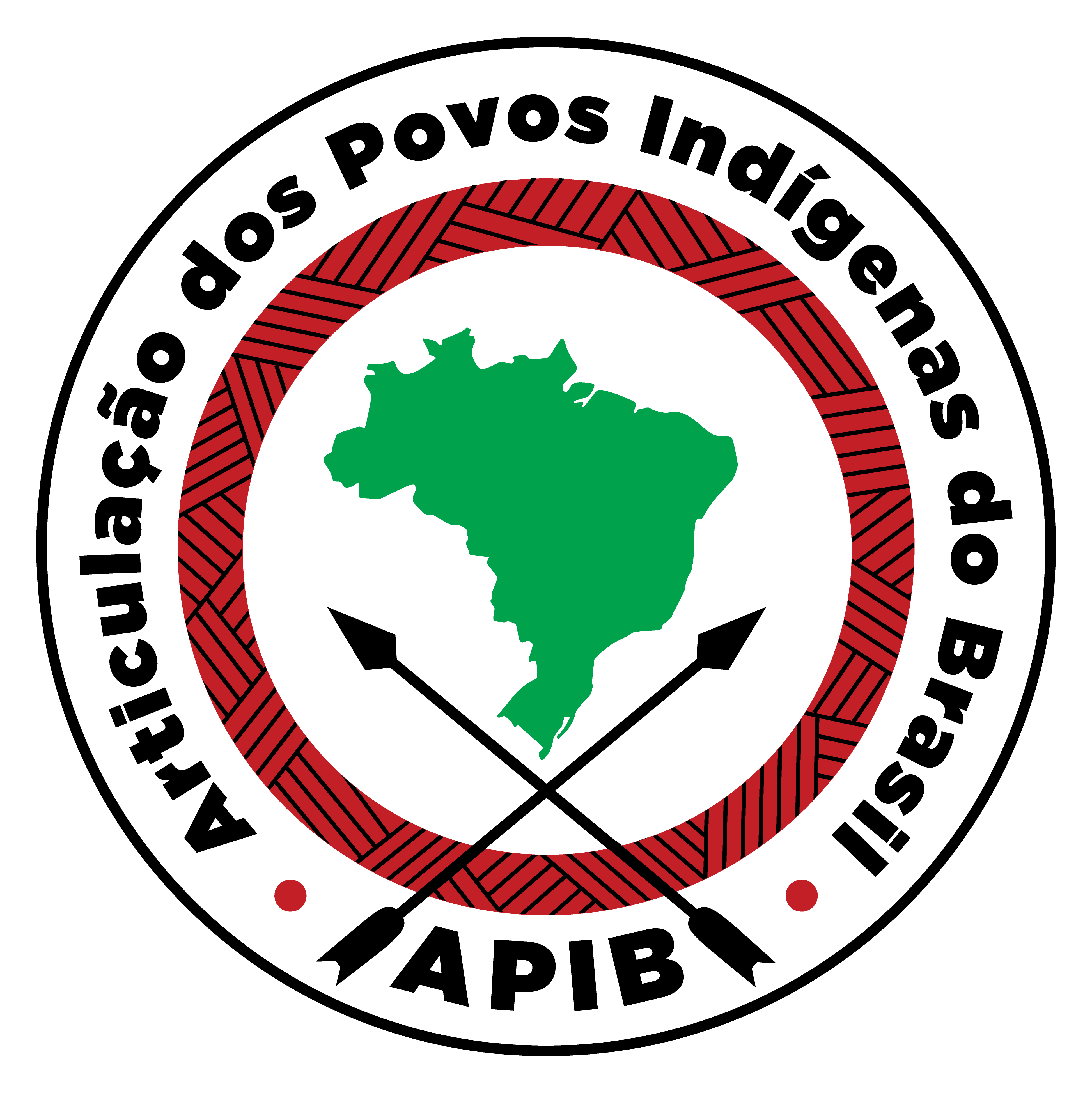
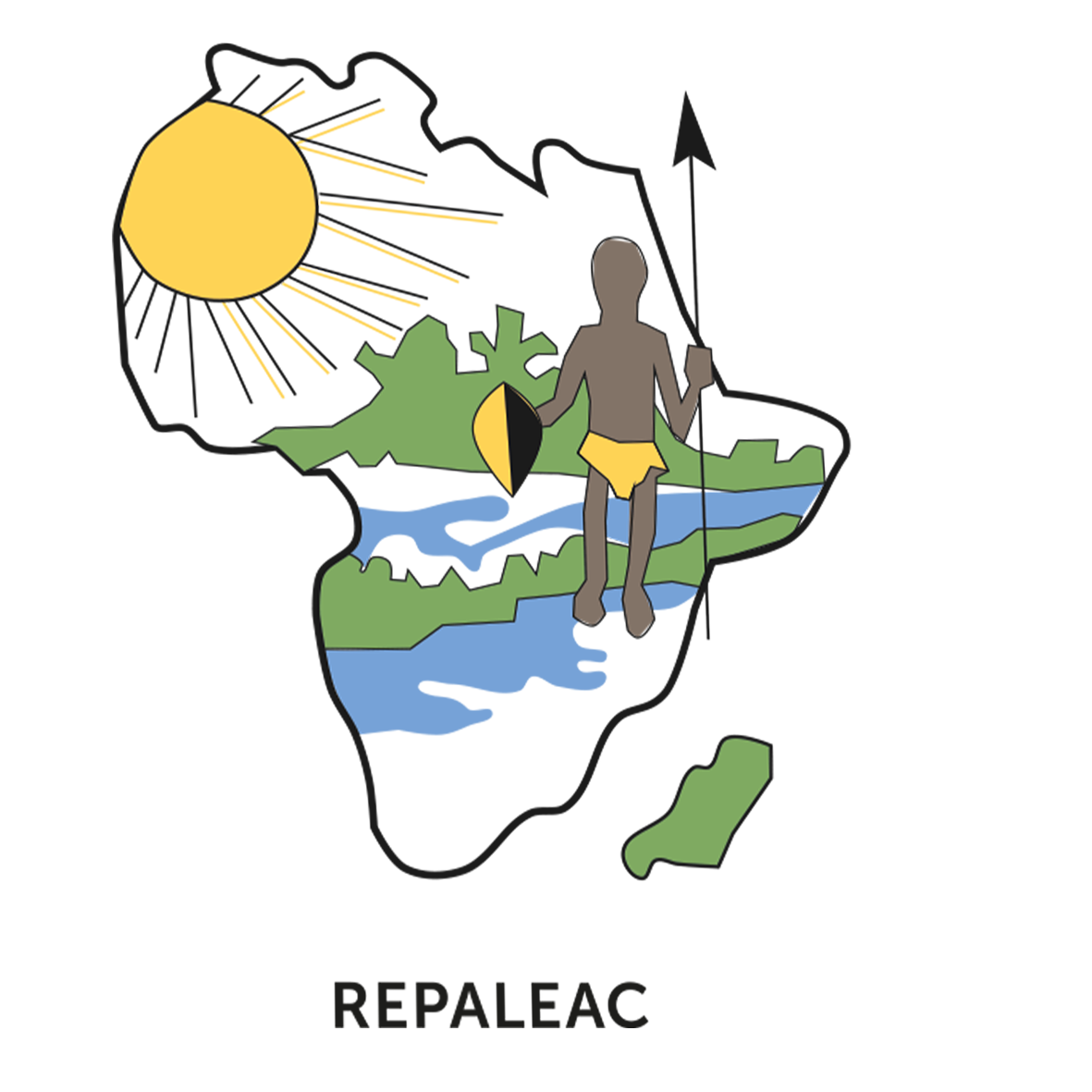
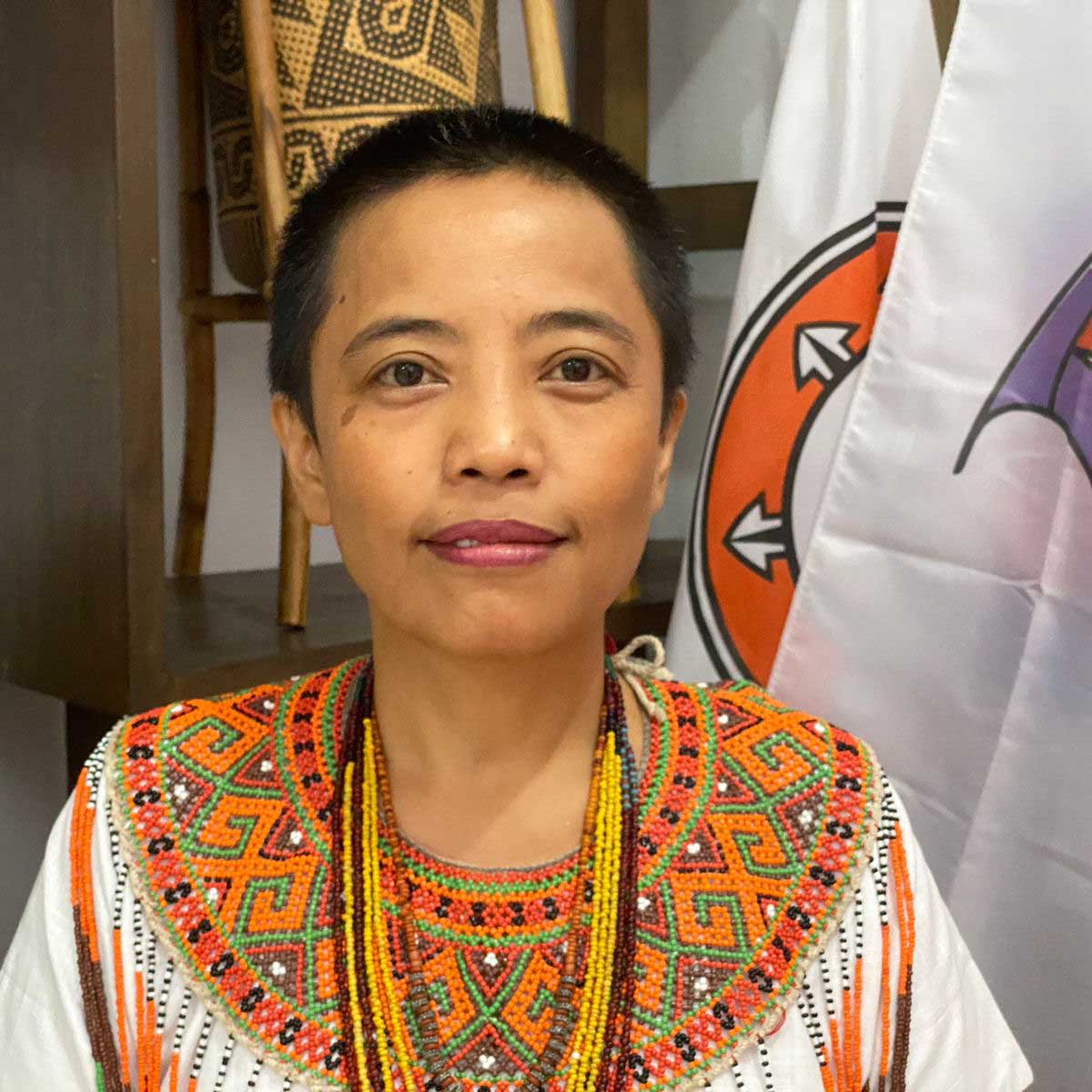
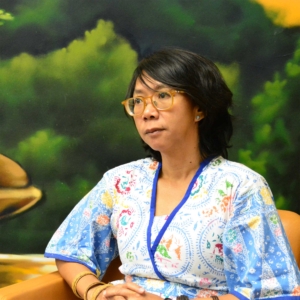 Mina Susana Setra, an indigenous leader (Dayak Pompakng) from West Kalimantan, Indonesia, currently serves as the Deputy to Secretary General of Indigenus People’s Alliance of the Archipelago (AMAN) on Social Culture Affairs, the world’s largest indigenous organization. Over 18 years, she has been actively involved in indigenous issues at local, national, and international levels.
Mina Susana Setra, an indigenous leader (Dayak Pompakng) from West Kalimantan, Indonesia, currently serves as the Deputy to Secretary General of Indigenus People’s Alliance of the Archipelago (AMAN) on Social Culture Affairs, the world’s largest indigenous organization. Over 18 years, she has been actively involved in indigenous issues at local, national, and international levels. Monica Ndoen, an indigenous leader from Rote, Indonesia, is the special envoy to AMAN’s Secretary-General. She’s dedicated 8 years to advocating for Indigenous Peoples’ rights in Indonesia, collaborating with government teams, including NHRI and Ministry of Environment and Forestry. She’s also an indigenous fellow with UN OHCHR, completing her legal studies in 2013.
Monica Ndoen, an indigenous leader from Rote, Indonesia, is the special envoy to AMAN’s Secretary-General. She’s dedicated 8 years to advocating for Indigenous Peoples’ rights in Indonesia, collaborating with government teams, including NHRI and Ministry of Environment and Forestry. She’s also an indigenous fellow with UN OHCHR, completing her legal studies in 2013.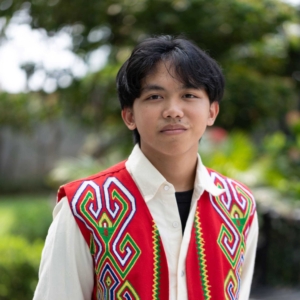 Kynan Tegar, an 18-year-old Dayak Iban from Sungai Utik, West Kalimantan, Indonesia, is a photographer and filmmaker. He captures the wisdom of his village’s elders, their resistance against deforestation, and their daily lives through emotive imagery and short films. His work emphasizes traditional knowledge and the importance of harmony with nature.
Kynan Tegar, an 18-year-old Dayak Iban from Sungai Utik, West Kalimantan, Indonesia, is a photographer and filmmaker. He captures the wisdom of his village’s elders, their resistance against deforestation, and their daily lives through emotive imagery and short films. His work emphasizes traditional knowledge and the importance of harmony with nature.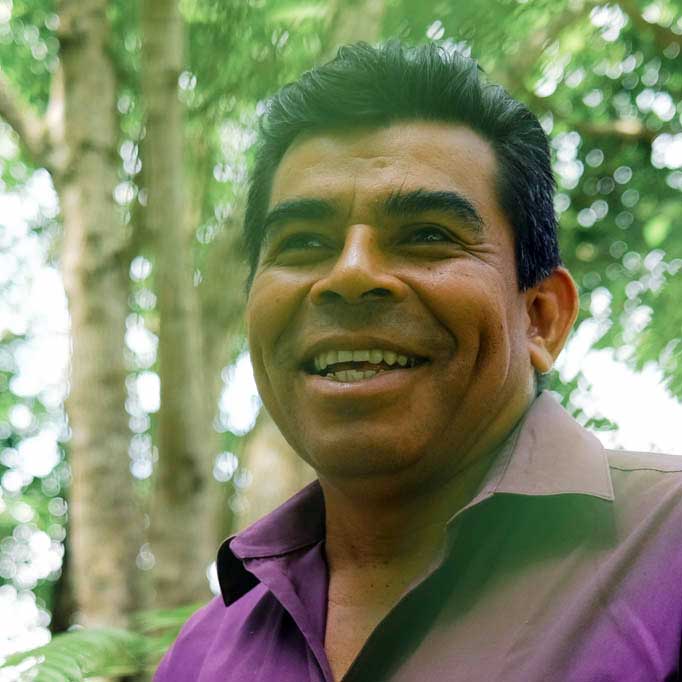
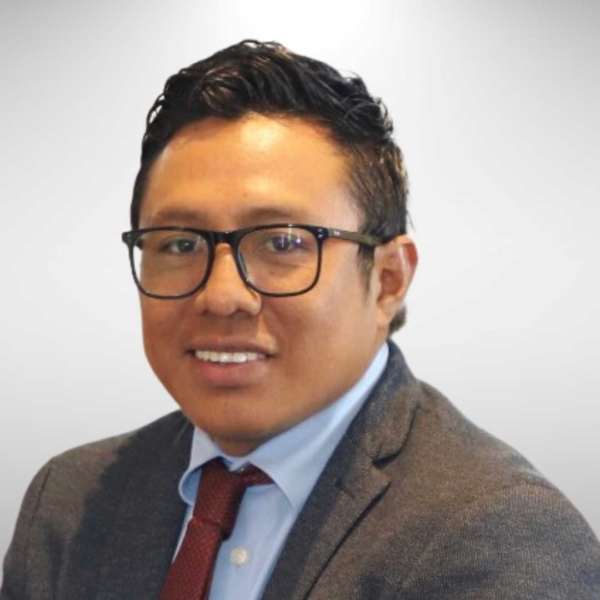 Giuseppe Olo Villalaz, hailing from the Usdub community in Comarca Gunayala, Panama, possesses a degree in Business Administration and over 10 years of experience in Indigenous Peoples’ rights and Climate Change issues. He serves as a substitute representative on the Boards of Directors for AMPB and the Mesoamerican Territorial Fund, and he’s the founder of the platform TV Indígena, dedicated to showcasing Indigenous Peoples of Abya Yala.
Giuseppe Olo Villalaz, hailing from the Usdub community in Comarca Gunayala, Panama, possesses a degree in Business Administration and over 10 years of experience in Indigenous Peoples’ rights and Climate Change issues. He serves as a substitute representative on the Boards of Directors for AMPB and the Mesoamerican Territorial Fund, and he’s the founder of the platform TV Indígena, dedicated to showcasing Indigenous Peoples of Abya Yala. Marco Aurelio Chávez Coyoy, a Maya K’iche’ community member in Guatemala, presently coordinates the legal department at Utz Che’, the Community Forestry Association of Guatemala. With over a decade of experience, he supports local communities and indigenous peoples in securing their rights, particularly in accessing forestry incentives. Additionally, he created the Transparency and Access to Public Environmental Information (TAIPA) methodology for social audits on environmental, forestry, and agricultural matters.
Marco Aurelio Chávez Coyoy, a Maya K’iche’ community member in Guatemala, presently coordinates the legal department at Utz Che’, the Community Forestry Association of Guatemala. With over a decade of experience, he supports local communities and indigenous peoples in securing their rights, particularly in accessing forestry incentives. Additionally, he created the Transparency and Access to Public Environmental Information (TAIPA) methodology for social audits on environmental, forestry, and agricultural matters.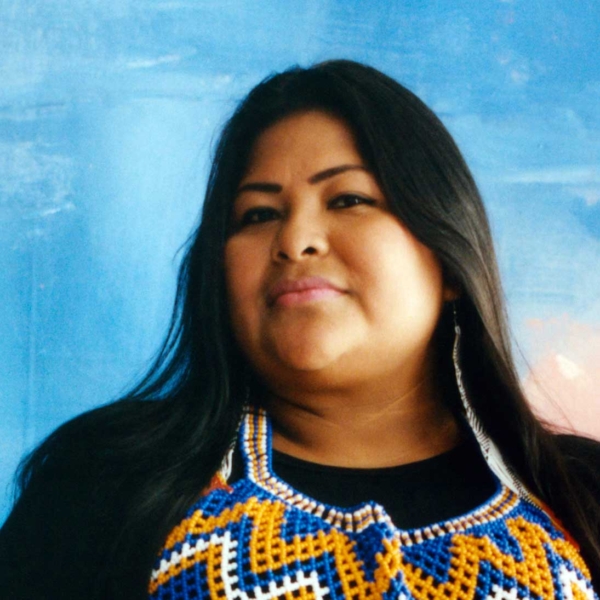 Sara Omi, an Emberá Lawyer and Indigenous Rights advocate in Panama, founded AMARIE-Emberá to empower Emberá women through traditional knowledge preservation. She serves as President of the Territorial Women Leaders in the Mesoamerican Alliance of Peoples and Forests (AMPB) and represents women in the Global Alliance of Territorial Communities. Sara is a two-time Forbes “100 most powerful women in Central America” honoree and Panama’s Empowerment Plan Coordinator for Indigenous Women.
Sara Omi, an Emberá Lawyer and Indigenous Rights advocate in Panama, founded AMARIE-Emberá to empower Emberá women through traditional knowledge preservation. She serves as President of the Territorial Women Leaders in the Mesoamerican Alliance of Peoples and Forests (AMPB) and represents women in the Global Alliance of Territorial Communities. Sara is a two-time Forbes “100 most powerful women in Central America” honoree and Panama’s Empowerment Plan Coordinator for Indigenous Women.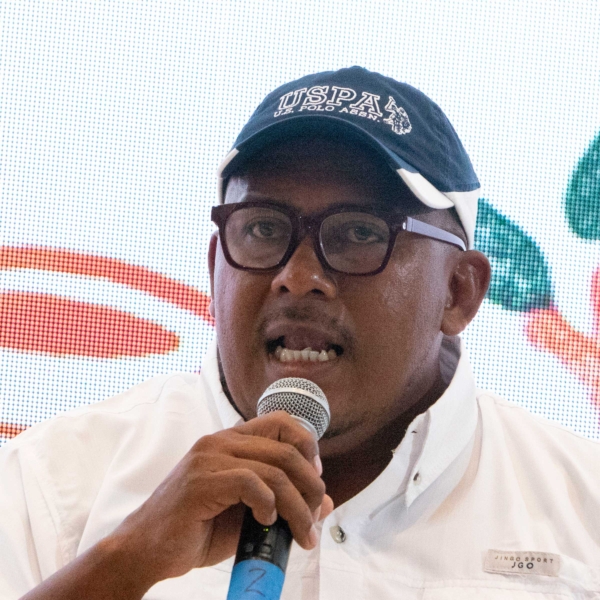 Elvis Antonio Greham, a Miskitu indigenous leader from Honduras, presides over MASTA, the highest Miskitu organization, uniting 12 legally recognized territorial councils. With 23 years as a primary education teacher, he’s been an indigenous leader for 8 years, including a term as Vice President of the Auhya yari territorial council and currently leads MASTA.
Elvis Antonio Greham, a Miskitu indigenous leader from Honduras, presides over MASTA, the highest Miskitu organization, uniting 12 legally recognized territorial councils. With 23 years as a primary education teacher, he’s been an indigenous leader for 8 years, including a term as Vice President of the Auhya yari territorial council and currently leads MASTA.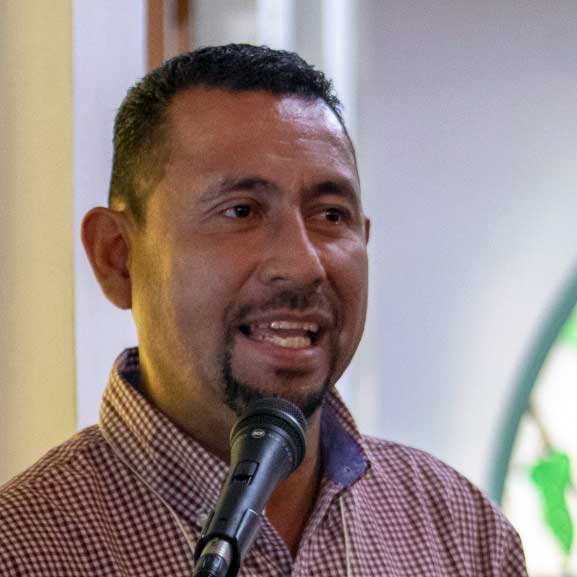 Guatemala, Sergio Guzmán, originally from Petén, has a Master’s degree in forest management in tropics and subtropics, as well as a diploma degree in Techniques and Strategies for the Conservation of Nature. With more than 16 years of experience working with forest communities in the Maya Biosphere Reserve (MBR), in which he specializes in community forest management, climate change mitigation, forest audits and management and monitoring of forestry projects. In addition, he has experience in forest carbon audits (validation/verification). Holds 15 years of experience in the Petén region, is an elected member of the World Bank’s FCPF Participants Committee and is currently the Manager of the Guatecarbon REDD+ Project.
Guatemala, Sergio Guzmán, originally from Petén, has a Master’s degree in forest management in tropics and subtropics, as well as a diploma degree in Techniques and Strategies for the Conservation of Nature. With more than 16 years of experience working with forest communities in the Maya Biosphere Reserve (MBR), in which he specializes in community forest management, climate change mitigation, forest audits and management and monitoring of forestry projects. In addition, he has experience in forest carbon audits (validation/verification). Holds 15 years of experience in the Petén region, is an elected member of the World Bank’s FCPF Participants Committee and is currently the Manager of the Guatecarbon REDD+ Project.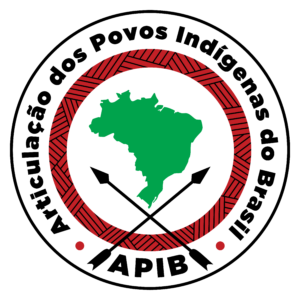
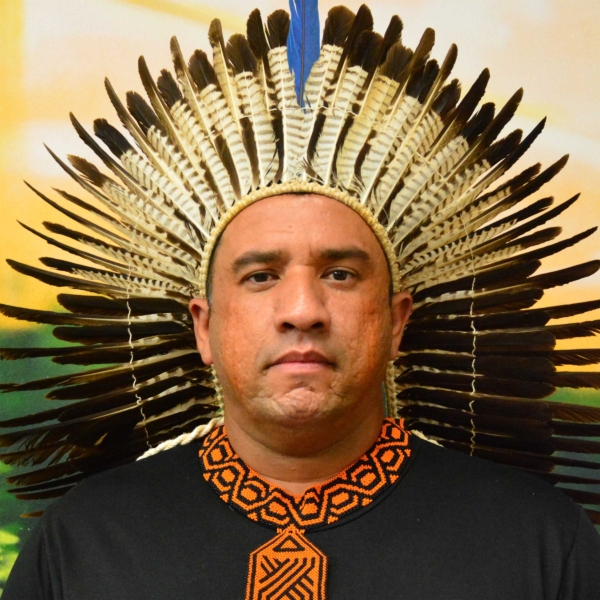
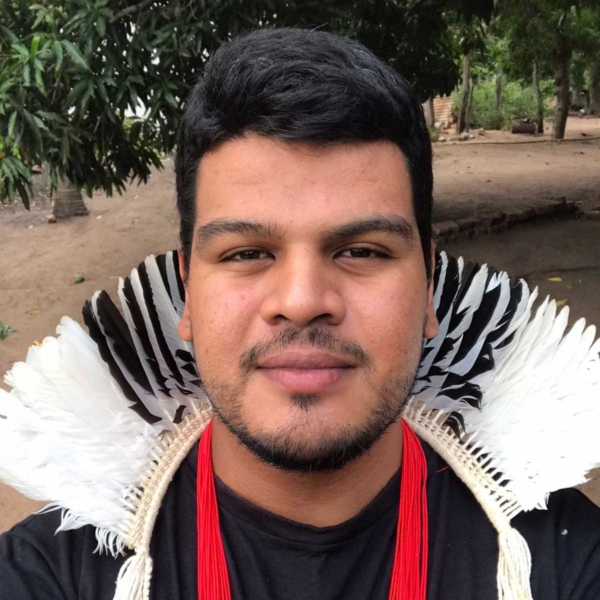
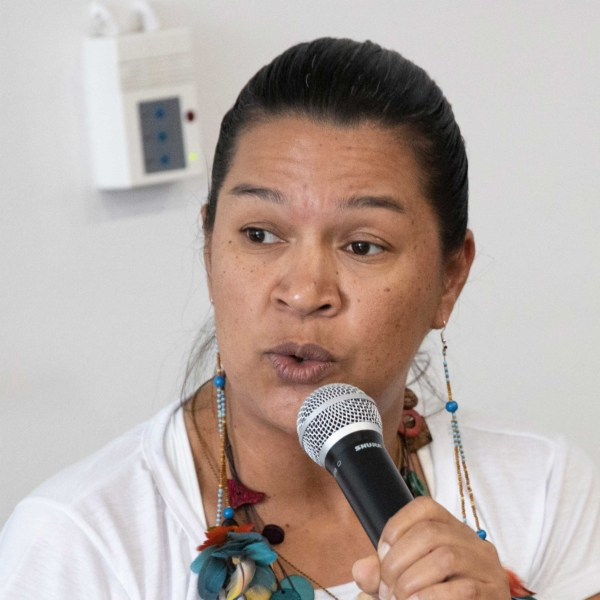 Cristiane Julião, from the Pankararu peoples of Brazil, holds a Geography degree from CESVASF/PE and is pursuing a Master’s and Ph.D. in Social Anthropology at the National Museum/UFRJ. Her research focuses on Indigenous Legal Anthropology at national and international levels. She is associated with the Articulation of Indigenous Peoples of Brazil (APIB) and co-founded the National Articulation of Indigenous Women Ancestrality Warriors (ANMIGA). Cristiane represents CNPI in CGen and the Chamber of Guardians.
Cristiane Julião, from the Pankararu peoples of Brazil, holds a Geography degree from CESVASF/PE and is pursuing a Master’s and Ph.D. in Social Anthropology at the National Museum/UFRJ. Her research focuses on Indigenous Legal Anthropology at national and international levels. She is associated with the Articulation of Indigenous Peoples of Brazil (APIB) and co-founded the National Articulation of Indigenous Women Ancestrality Warriors (ANMIGA). Cristiane represents CNPI in CGen and the Chamber of Guardians.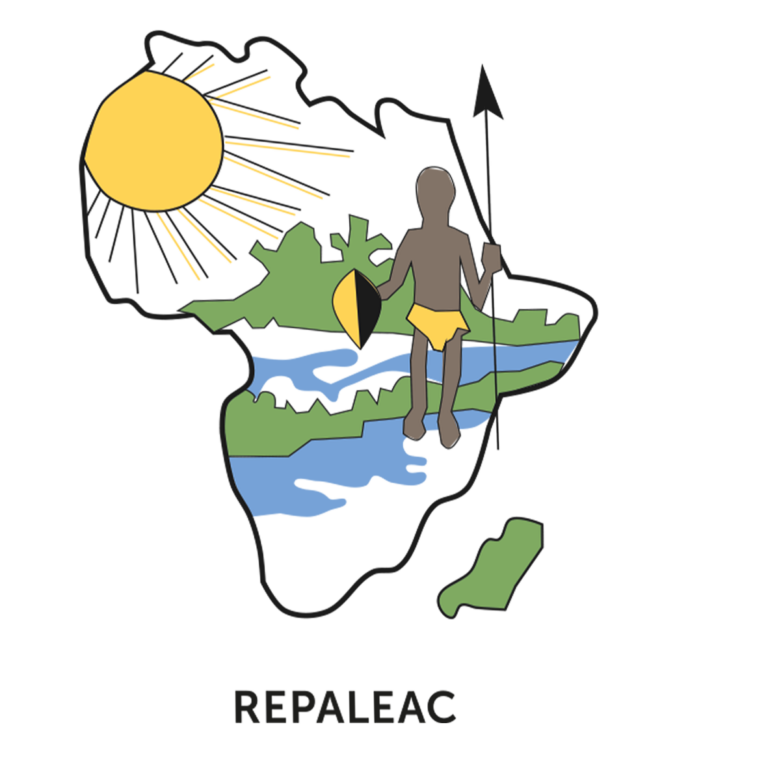
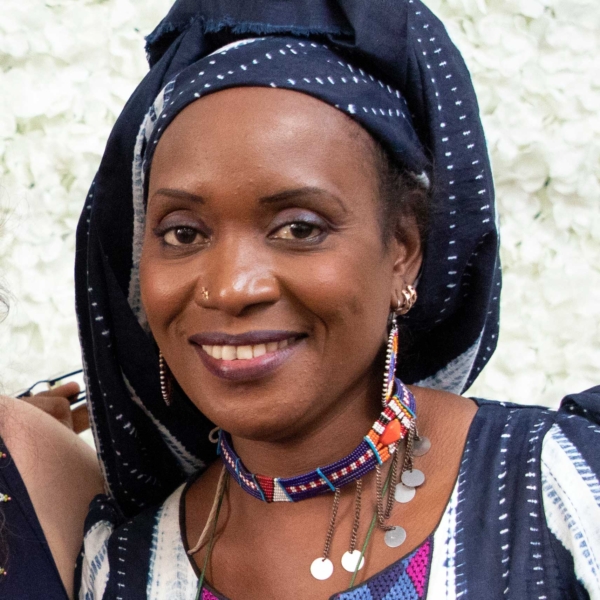
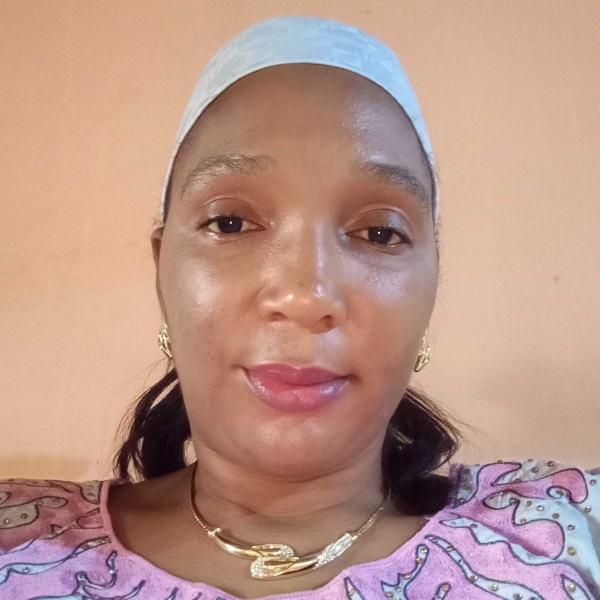 Balkisou Buba, a Cameroonian social worker hailing from the Mbororo Fulani Pastoralist community, champions indigenous rights as Founder and President of IPSD-Cameroon, Vice National Coordinator of REPALEAC Cameroon, and former Assistant Observer for French Africa at the World Bank. A 2015 Mandela Washington Fellow, she’s an advocate for empowering women, youth, and indigenous minorities.
Balkisou Buba, a Cameroonian social worker hailing from the Mbororo Fulani Pastoralist community, champions indigenous rights as Founder and President of IPSD-Cameroon, Vice National Coordinator of REPALEAC Cameroon, and former Assistant Observer for French Africa at the World Bank. A 2015 Mandela Washington Fellow, she’s an advocate for empowering women, youth, and indigenous minorities.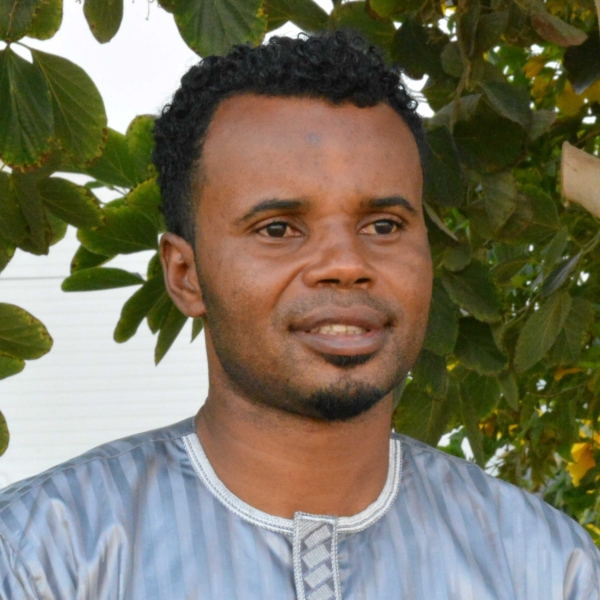 Basiru Isa, Regional Secretary General of REPALEAC in Central Africa, holds a Master’s Degree in Anthropology from the University of Yaoundé. With over 12 years of experience, he specializes in human rights, livelihoods, and pastoral/farming activities. Basiru has supported indigenous communities, including working with MBOSCUDA on conflict resolution, and collaborating with local organizations across multiple countries in the region.
Basiru Isa, Regional Secretary General of REPALEAC in Central Africa, holds a Master’s Degree in Anthropology from the University of Yaoundé. With over 12 years of experience, he specializes in human rights, livelihoods, and pastoral/farming activities. Basiru has supported indigenous communities, including working with MBOSCUDA on conflict resolution, and collaborating with local organizations across multiple countries in the region.